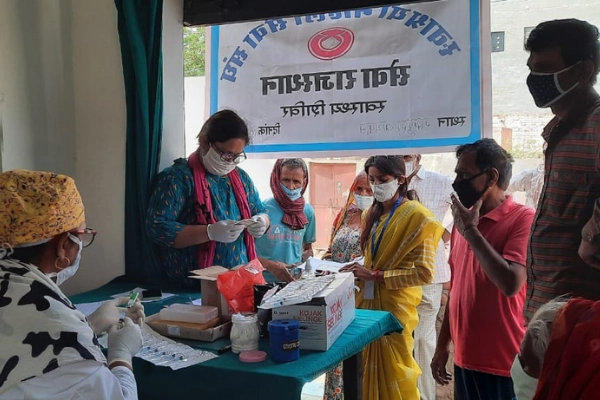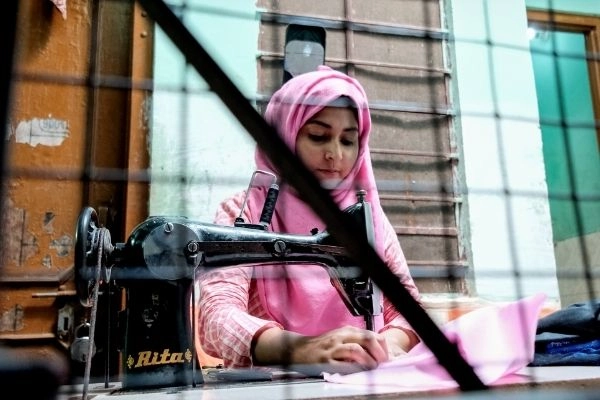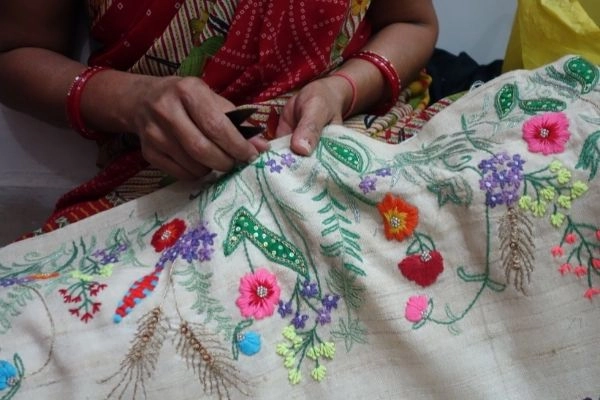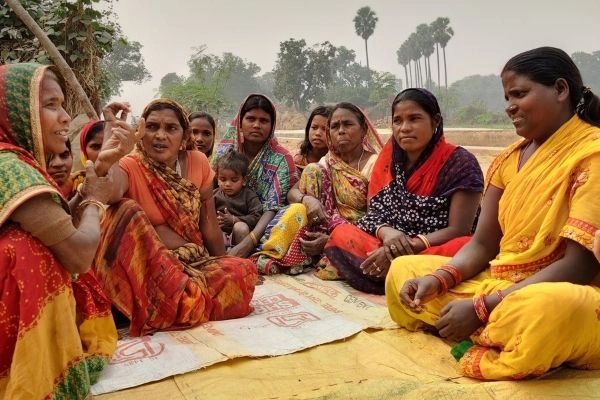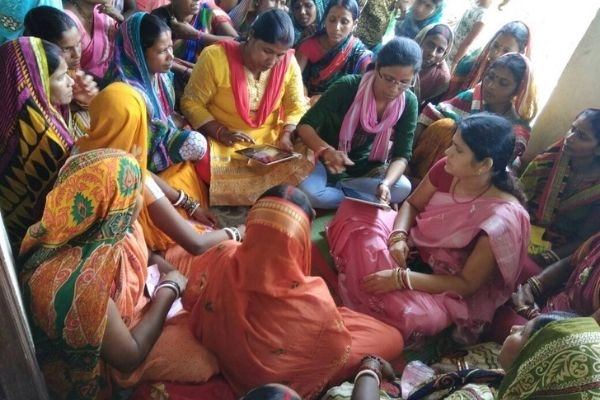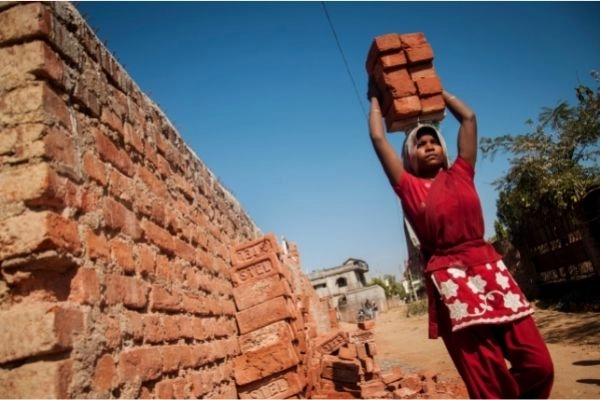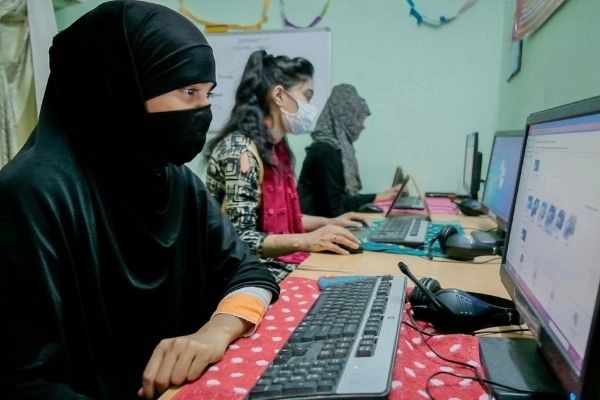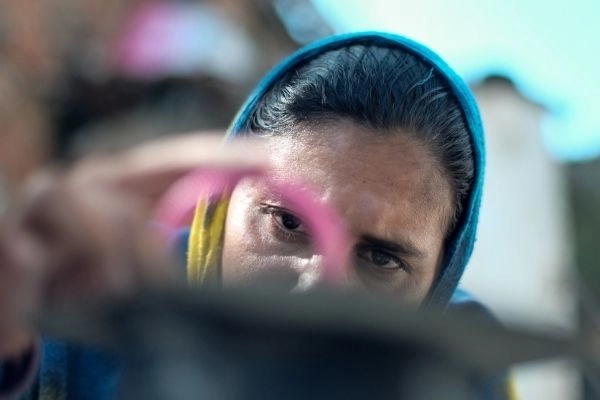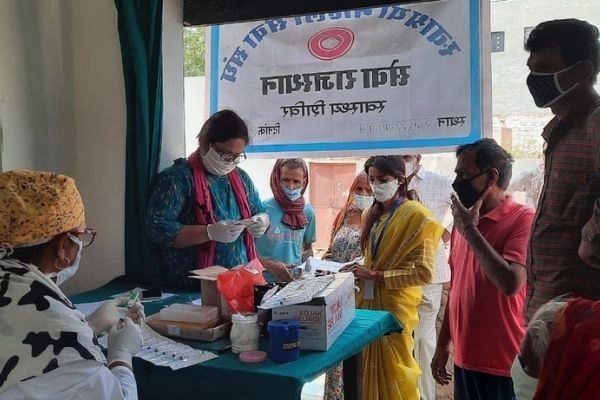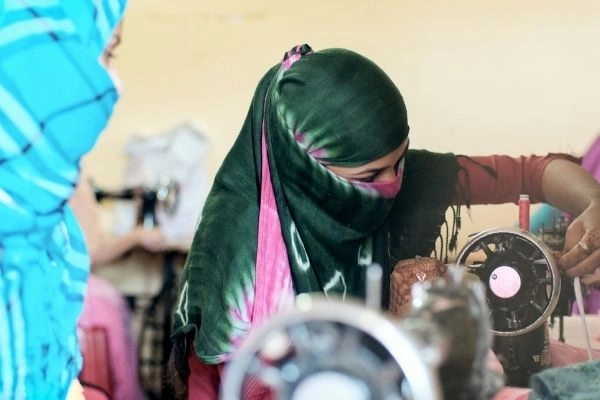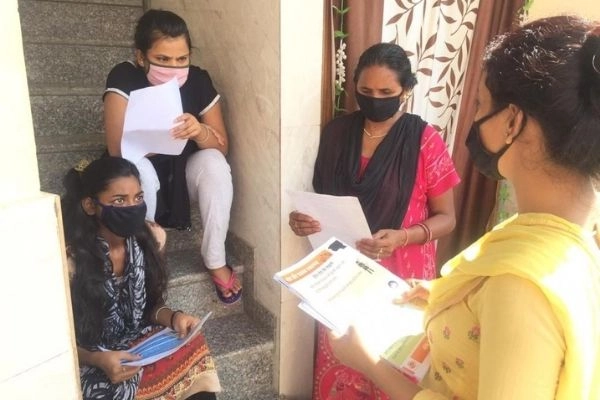Search Research Publications on Sewa Bharat
I don’t share personal details with just anybody,” said Gunja Kumari Ben, a resident of Bhagalpur, Bihar, as she was approached for a conversation. But when we came to know that she was being approached by SEWA Bharat, Gunja Ben visibly let go of some of her inhibitions. She told that she was familiar with the organization’s work, and began sharing about her trade and recent struggles as a microentrepreneur. She is a tailor who used to earn well until two years ago, but since the onset of COVID-19, she has lost her source of income. Even her husband lost his means of livelihood that came through a cloth business. Gunja Ben and her family had some savings during the 2020 lockdown with which they were able to run their household. But during the second lockdown, it became imperative for them to get a loan from a moneylender at a massive interest rate of 10%, which they are under pressure to return soon. Gunja Ben keeps herself updated about the fast-spreading disease, the possibility of lockdowns, and the vaccine through the TV news, Whatsapp groups, neighbors, and newspapers. She proudly tells us how she uses a mask and sanitizer even within her house and washes her hands multiple times a day. Despite her economic condition she remains hopeful that: when the lockdown opens, she will get to work again.
I don’t share personal details with just anybody,” said Gunja Kumari Ben, a resident of Bhagalpur, Bihar, as she was approached for a conversation. But when we came to know that she was being approached by SEWA Bharat, Gunja Ben visibly let go of some of her inhibitions. She told that she was familiar with the organization’s work, and began sharing about her trade and recent struggles as a microentrepreneur. She is a tailor who used to earn well until two years ago, but since the onset of COVID-19, she has lost her source of income. Even her husband lost his means of livelihood that came through a cloth business. Gunja Ben and her family had some savings during the 2020 lockdown with which they were able to run their household. But during the second lockdown, it became imperative for them to get a loan from a moneylender at a massive interest rate of 10%, which they are under pressure to return soon. Gunja Ben keeps herself updated about the fast-spreading disease, the possibility of lockdowns, and the vaccine through the TV news, Whatsapp groups, neighbors, and newspapers. She proudly tells us how she uses a mask and sanitizer even within her house and washes her hands multiple times a day. Despite her economic condition she remains hopeful that: when the lockdown opens, she will get to work again.


Sample Text


Latest Publications
Gendered Precarity in the Lockdown
This study was conducted to capture the experiences of women in the informal economy and build an understanding of the gendered consequences of the national lockdown aimed at preventing the spread of COVID-19.
SEWA Samvaad 2020: Bridging the Digital Divide for Women in the Informal Economy
Bridging the gendered digital divide in the informal economy
SEWA Samvaad 2020 Resilience and Women Micro-Entrepreneurs: COVID-19 and Beyond
Resilience and women entrepreneurs: COVID-19 and beyond
Bark Worse Than Bite: Fears Around the COVID Vaccine(Summary)
The study, through 1500 pariticipants aimed to understand the attitude, perception, misconception, fear, and widespread myths women in the informal economy have about the vaccine.
Impact of the Second Wave and Lockdown on SEWA’s Informal Sector Women : A Short Summary
This exploration aimed to understand the impact the second wave of the pandemic and the consequent 2021 lockdown brought about on SEWA members of the informal economy; with reference to their livelihoods, savings, and income, their experience with the COVID - testing and vaccination and other facets of their life which have been affected by the pandemic.
Bark Worse Than Bite: Fears Around the COVID Vaccine: Full Report
Understanding the attitude, perception, misconception, fear, and widespread myths among the informal women workers about the vaccine

